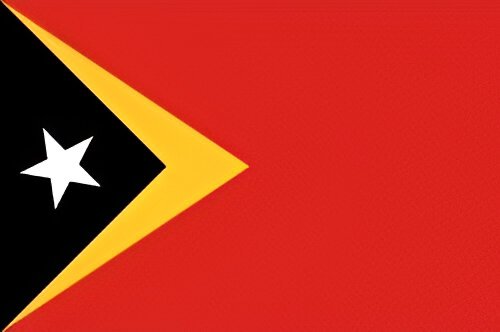Example White Paper #5
UNESCO
Democratic Republic of Timor-Leste
Topic B: Trafficking of Cultural Artifacts
James Smith
American High School
Just as a child loses a part of themselves when a parent passes away, nations and their people face a profound loss when stripped of their cultural artifacts. The absence echoes not only in the tangible void left behind but also in the silent erosion of identity and heritage. The Democratic Republic of Timor-Leste has faced a similarly bleak history. In its long and arduous path to statehood, Timor-Leste has experienced colonization, violent occupation, and genocide. Throughout its long history as the most historically rich island of the Lesser Sunda Islands, the native Timorese developed detailed carvings, textiles, and elaborate bronze weapons. Following Portuguese, Dutch, and finally Indonesian occupation, these artifacts have all but disappeared from the island, appearing only in European and Indonesian museums. Artifacts pillaged from Timorese archaeological sites support a thriving black market mostly perpetrated by locals, who often live in poverty. A key aspect of this committee is supporting nations’ attempts to combat art theft and to help nations reclaim artifacts taken during the colonial era. With art theft continuing and colonized nations still without control of their cultural artifacts, developing comprehensive programs to aid nations in protecting cultural heritage and passing new legislation regarding colonial-era holdings are pressing matters.
The Democratic Republic of Timor-Leste firmly advocates for the development of new legislation that enshrines the rights of countries to reclaim cultural property taken before 1970, a period marked by extensive colonial exploitation and plundering of cultural treasures. Timor-Leste's history is fraught with challenges related to cultural property, stemming from its experience negotiating with colonial powers for the return of invaluable artifacts looted during periods of occupation. The struggle for repatriation underscores the urgent need for robust legal frameworks that facilitate the return of stolen cultural artifacts to their countries of origin. Additionally, Timor-Leste has grappled with the scourge of illegal trafficking of cultural artifacts within its borders, highlighting the pressing need for further aid and support mechanisms to protect cultural heritage from exploitation and theft. In this regard, Timor-Leste stands as a testament to the complexities and realities of cultural property issues in the modern world and is well-positioned to contribute valuable insights toward the development of actionable strategies to address these challenges on a global scale.
To ensure practicality and efficacy in its approach, this committee must prioritize the implementation of grassroots initiatives aimed at safeguarding cultural heritage, the development of globally accessible tools to facilitate the tracking of cultural artifact exchanges, and the establishment of mechanisms enabling the repatriation of cultural artifacts acquired before 1970. To enhance efforts to combat the illicit trafficking of cultural artifacts, the Democratic Republic of Timor-Leste proposes the establishment of a volunteer corps capable of enrolling online and receiving specialized training to assist in the identification and recovery of stolen cultural treasures. Members of this corps would be empowered to collaborate with INTERPOL, providing valuable information and support in the pursuit of stolen artifacts, and would receive both recognition and compensation for their contributions. Furthermore, to bolster these initiatives, Timor-Leste advocates for the development of an artificial intelligence-driven tool designed to systematically scan online platforms for the sale of stolen cultural artifacts. Equipped with authentication capabilities, this tool would serve to alert appropriate authorities and prevent illicit transactions, complementing existing cultural artifact databases in the ongoing effort to safeguard global heritage. Through concentration on these key initiatives, the Democratic Republic of Timor-Leste urges this committee to take decisive action in addressing the urgent need to protect our shared cultural heritage. By prioritizing grassroots initiatives, developing accessible tracking tools, and establishing mechanisms for artifact repatriation, this committee can strengthen collective efforts against cultural trafficking. The proposed establishment of a volunteer corps, coupled with the integration of AI-driven technology, represents tangible steps toward preserving cultural artifacts for future generations.

